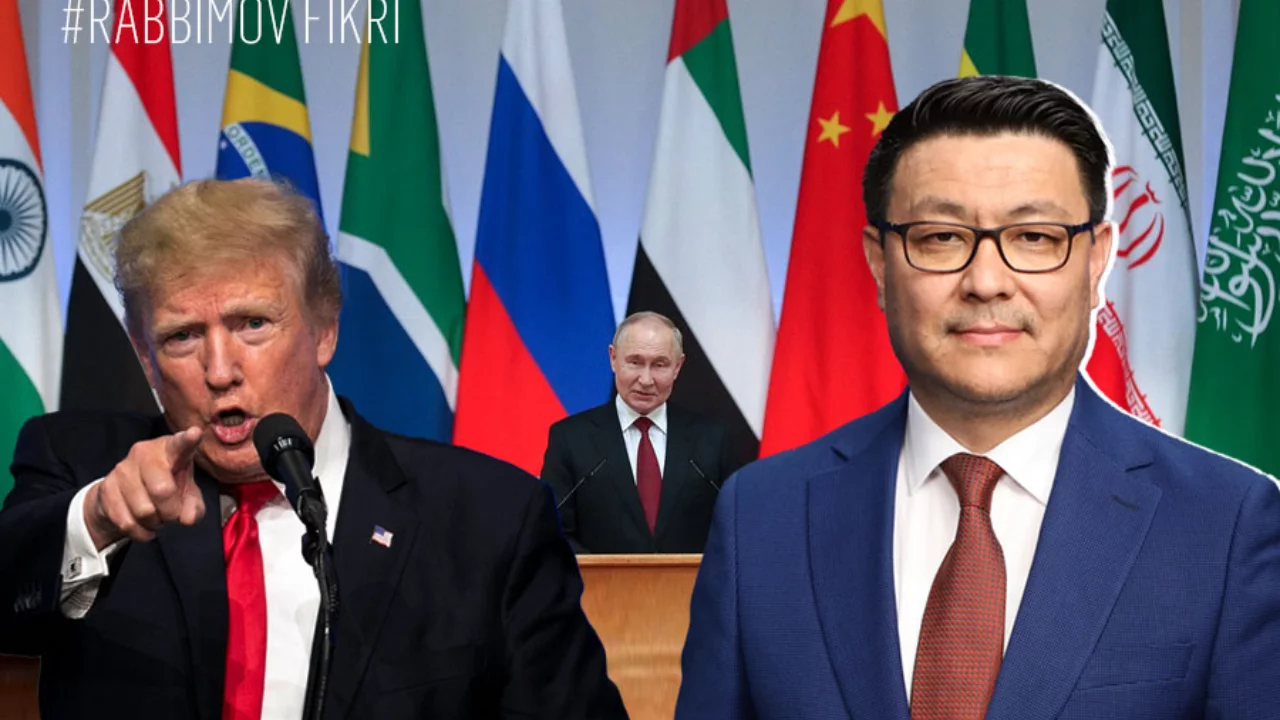The U.S. is concerned: Will BRICS end Western hegemony?

On July 6–7, the next BRICS Plus summit was held in Rio de Janeiro, Brazil. Amid the summit, U.S. President Trump threatened BRICS member states and announced the possibility of imposing serious sanctions and tariffs.
As is known, Trump is an isolationist politician — a supporter of reducing the global responsibilities and expenses of the U.S. Then a question arises: if the Trump administration advocates isolation and withdrawal, why is it unhappy with BRICS? What is it afraid of?
Even before Trump, previous U.S. presidents treated BRICS negatively. Why do the U.S. and Western countries fear the BRICS+ organization? What is the cause of this fear?
The past centuries have been the centuries of Western civilization. For the last five centuries, the states of Western Europe — and later, North America — have become the most powerful in the world. This region is often referred to as the “North Atlantic.” The Industrial Revolution began in England and then spread to Western Europe and North America. The biggest technological breakthroughs and inventions emerged from this region. Electricity, steam engines, railroads, automobiles, and countless innovations were developed here.
By the 16th–18th centuries, Western European states had accumulated unprecedented power and wealth, and they began colonizing the rest of the world. This was the era of colonialism. By the 19th century, there were almost no territories left uncolonized by the West. Only in the first half of the 20th century, due to the two world wars, did Western Europe begin to weaken and lose its colonies. Thus, the second half of the 20th century became the period of decolonization.
Today, the West is not weak, fading, or regressing. It still remains the most industrialized, economically and militarily powerful force. But something has changed: countries outside the West have also begun to grow and industrialize. The West has not become weaker — it’s just that Asia, Africa, and Latin America are now also progressing.
For example, China — one of the founding members of BRICS — has overtaken the U.S. in industrial production. India, South Africa, and Brazil are also rising rapidly. These countries were once very weak. Now they are calling for a revision of the rules.
After World War II, the world was devastated. Only the U.S. remained as the economic and military center. As a result, for the next 80 years, all global institutions, laws, economic networks, and diplomacy were built according to U.S. rules. This frustrates the developing world. For example, the dollar is the global reserve currency — but it is not backed by anything. Or, the SWIFT system was created with the active support of the U.S., and to this day gives Washington power over other states.
The strategic goal of BRICS+ is to move beyond Western economic and geoeconomic hegemony. That is, to build an alternative system — one that does not rely on the will of Washington. However, BRICS+ does not aim to destroy the West, but rather to secure its own independent development.
U.S. Secretary of State Marco Rubio sometimes says America supports multipolarity. But Trump thinks he has the right to dictate terms to everyone — Brazil, South Africa, China, Russia. On one hand, he’s an isolationist, wanting to limit foreign engagement. On the other hand, he’s an imperialist — believing the U.S. must rule the world.
In BRICS declarations, the principles of free trade, WTO and UN rules are emphasized. But the U.S. sees BRICS as an “anti-American” alliance. That’s because the U.S. itself is now violating WTO and UN rules. Trump’s economic wars, tariffs, and sanctions have damaged these institutions.
The U.S. had two choices: to accept a multipolar world and cooperate fairly; or to preserve its hegemony by suppressing the growth of others through economic warfare. For now, it has chosen the second.
The world needs multipolarity. This is an objective process. It cannot be stopped — not by the U.S., nor by the collective West.
For Uzbekistan and Central Asia, organizations like BRICS+, which promote economic multipolarity, are certainly beneficial. But there are risks. For instance, Russia — a former colonizer — is now revisionist. China — undemocratic, but a close neighbor.
Therefore, while forming a multipolar world, we — Central Asia, the Turkic and Islamic world — must enhance our political and geopolitical agency and work toward unity and regional integration.
Komiliddin Rabbimov, political analyst
Read “Zamin” on Telegram! Ctrl
Enter
Found a mistake?
Select the phrase and press Ctrl+Enter 





















